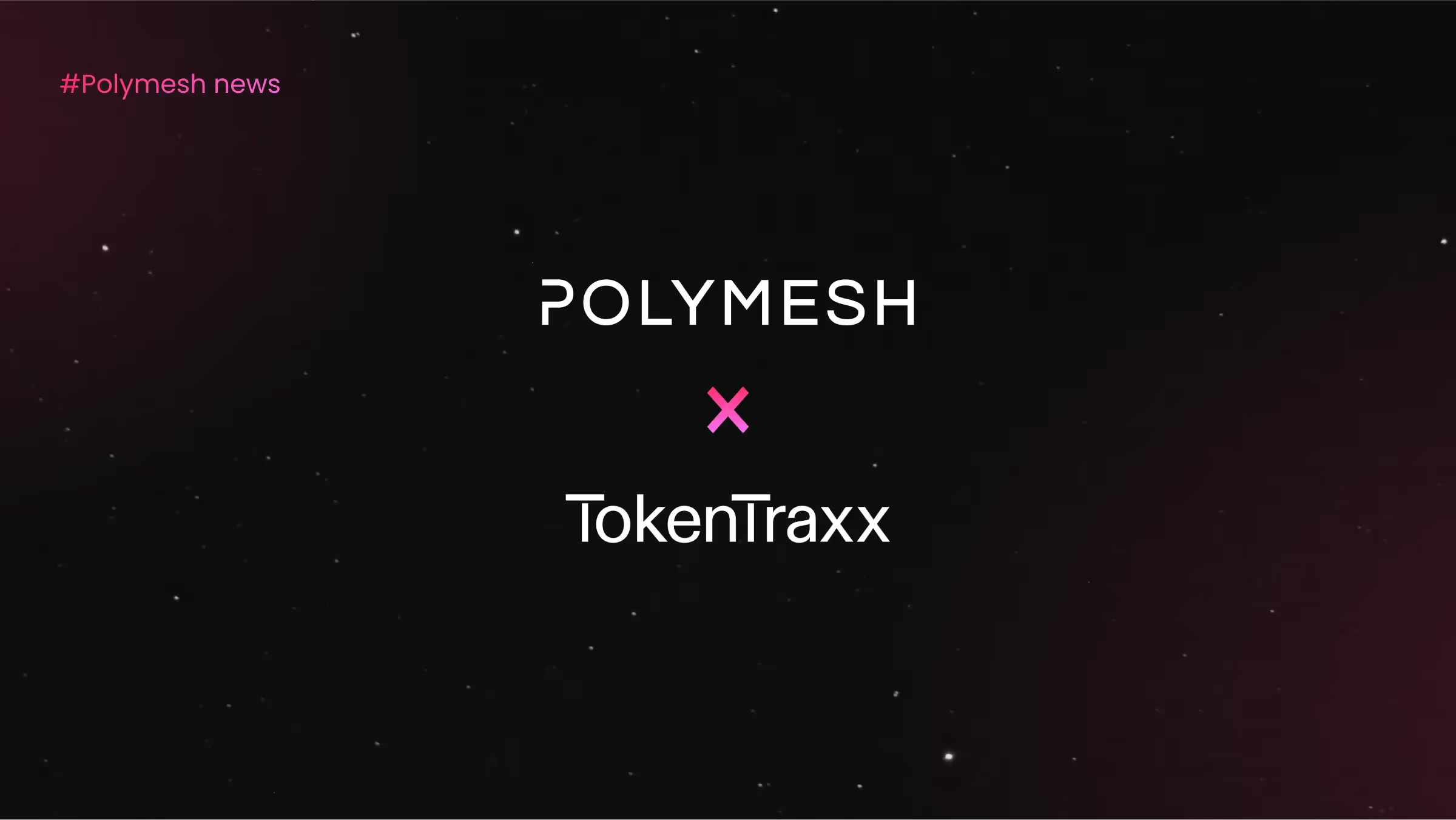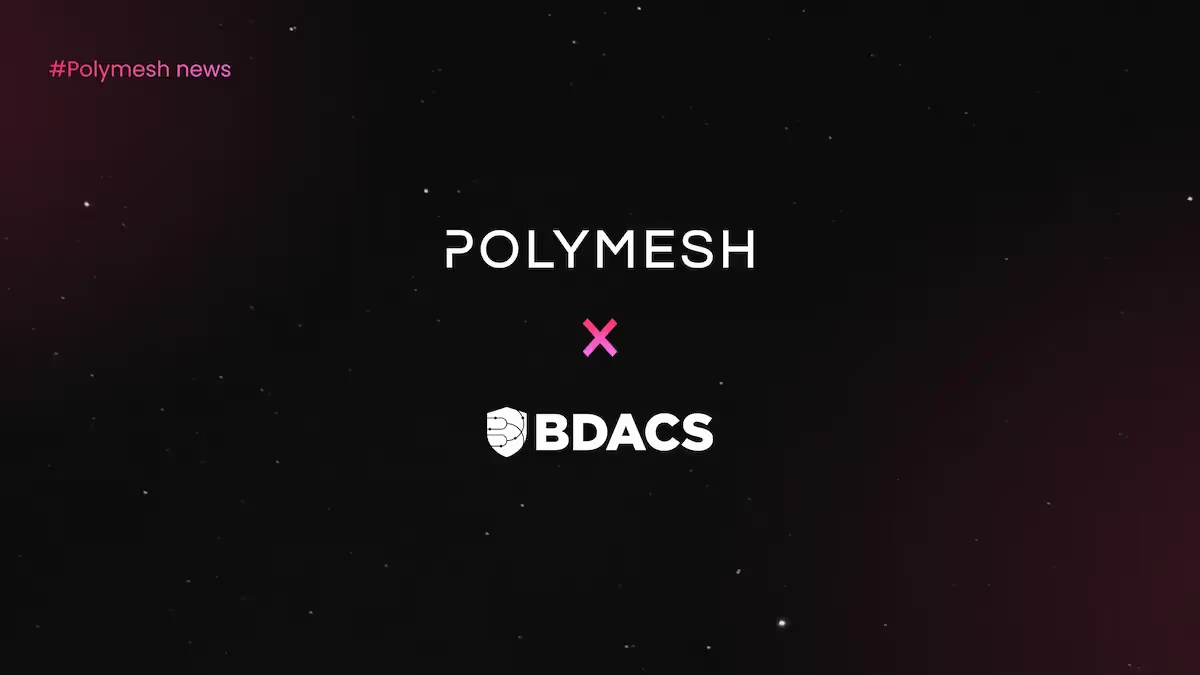Tokenization’s impact on intellectual property: patents, copyrights, and trademarks
The invention of blockchain isn’t just transforming the financial industry – it’s also transforming invention itself through the tokenization of intellectual property such as patents, copyrights, and trademarks.
Tokenization converts asset representation and ownership into digital tokens that can be traded, exchanged, and managed on the blockchain. From simplifying ownership transfer to enhancing transparency, tokenization has the potential to impact intellectual property management.
In this blog post, we’ll explore how tokenization impacts intellectual property and the legal implications.
What is tokenization?
Tokenization is the process of converting the ownership and associated rights of an asset into a digital token on a blockchain such as Polymesh.
Tokens on the blockchain can be easily transferred and traded, much like physical assets. Tokens are traceable and secure, with the blockchain providing a transparent and immutable ledger of transactions that serves as a single source of truth for all participants.
Digital tokens can be used to represent various assets, including trademarks, copyrights, and patents. Non-fungible tokens can ensure that each token is unique, just like the actual intellectual property asset. However, fungible tokens may be a more appropriate choice for use cases involving revenue sharing, investment pools, and broad-based access or usage rights.
Asset fractionalization can enable fractional ownership of intellectual property assets, bringing new ownership models and improving funding for future development. By fractionalizing assets, creators, inventors, and brand owners can gain liquidity and exposure from the asset without giving up majority ownership or control.
The impact of tokenization on patents, copyrights, and trademarks
Patents: unlocking more value
Patents are central to innovation, providing inventors with exclusive rights to their creations for a limited period. However, traditional patent filing and management is cumbersome and expensive, making it challenging for inventors to monetize their inventions effectively and potentially limiting future innovation potential.
Tokenization overcomes this problem by bringing efficiency and transparency to the entire patent lifecycle, from filing and examination to licensing and enforcement. The blockchain provides a clear, immutable record of ownership and transfer that can reduce disputes over patent ownership and streamline patent licensing.
Improving patent trading makes it easier to grant usage rights to third parties, helping investors unlock more value in their patents and access new sources of funding to further develop their innovations. Another factor improving funding models is fractionalization, as tokenization empowers inventors to offer fractional ownership in patent investments, making it easier for investors to participate at lower minimums.
Copyrights: empowering creativity
Copyrights protect original works of authorship, including literary, artistic, and musical creations. However, navigating copyright licensing agreements and royalty payments can be complex, particularly in the digital era. For copyrights, tokenization overcomes this problem and offers an innovative way to manage and monetize creative works.
By tokenizing copyrighted work, creators can ensure rights to their works are securely recorded on the blockchain and benefit from better transparency and provenance tracking. Tokenizing copyrighted works makes it easier to track proper usage, enforce licensing agreements, and ensure that payments such as royalties are automatically distributed to the rightful owners.
Tokenization also enables creators to establish direct connections with their fans. For example, musicians who tokenize their songs on Polymesh through the TokenTraxx platform can offer exclusive experiences and perks to token holders, fostering higher engagement and loyalty with their fan base. Artists will also be able to leverage Polymesh’s native settlement functions to distribute automatic, immutable royalties to fans generated by their favorite tracks.
Trademarks: protecting brands
Trademarks play a vital role in brand identity and consumer trust, distinguishing products and services in the marketplace. However, enforcing trademark rights and combating infringement is challenging in a global economy. Tokenization overcomes these challenges by bringing transparency and efficiency to brand asset management.
A tokenized trademark can provide verifiable proof of ownership and immutable transaction history, helping businesses deal with legal disputes and better protect their brand identity. Better provenance tracking helps brand owners to track the usage of assets in real time, improving the enforcement of licensing agreements and combating counterfeit usage.
Tokenization also opens up new opportunities for brand monetization. By simplifying the process of buying, selling, or licensing trademark rights, tokenization makes it easier for businesses to expand their brand presence across different markets. Tokenization also enables fractional ownership, allowing companies to sell a percentage of trademarks to investors seeking exposure to established brands.
Legal implications for tokenizing IP
The benefits of tokenization are clear but raise important legal questions. One primary concern is the recognition of and enforcement of tokenized IP rights under current legal frameworks. Since IP laws vary significantly across jurisdictions, the acceptance of a blockchain-based ownership record as legally binding may differ and complicate international transactions, at least in the early days while comprehensive digital asset frameworks are still in development.
Additionally, the process of tokenizing IP must comply with existing IP regulations, which can be complex and vary depending on the type. The legal requirements for transferring a patent differ from those of copyrights or trademarks. Ensuring that the tokenization process adheres to the relevant regulations is crucial for maintaining the legal validity of the tokenized asset.
Another critical issue is the need for robust security measures, as technology is always subject to vulnerabilities. Blockchain technology is often viewed as more secure than traditional systems, but the platforms used for tokenization must ensure the token is also linked to the actual IP rights or asset, which may be off-chain.
Participants need to think about security at every stage. Choosing a secure layer-one blockchain such as Polymesh, which has had 100% uptime since inception with multiple third-party audits and zero security vulnerabilities, is the minimum.
Looking ahead: future trends in the tokenization of intellectual property
The evolution of tokenization has come a long way from standards on Ethereum to bespoke blockchains like Polymesh that are purpose-built for regulated assets. Looking ahead, the future of tokenization in intellectual property is immensely promising.
The legal challenges mentioned above are set to be minimized as we see increased regulatory clarity and acceptance of tokenized IP assets. Governments and regulatory bodies are already recognizing the potential of blockchain technology to streamline asset management and enhance market transparency.
Advancements in blockchain technology, such as the development of interoperable networks, will enable more sophisticated tokenization models and enhance the functionality of tokenized IP assets. This evolution will unlock new opportunities for collaboration, investment, and innovation, fueling the growth of tokenized IP ecosystems globally. This process has already begun with tokenized music platforms such as TokenTraxx or Tune.fm, but it also stands to benefit the biomedical industry, technology startups, branding and marketing, and other creative industries.
At Polymesh, we anticipate a proliferation of specialized tokenization platforms and marketplaces tailored to the unique needs of IP holders, enabling them to better monetize and manage their intangible assets. Whether it’s patents, copyrights, or trademarks, tokenization can unlock value and boost innovation. As these trends unfold, tokenization will play an increasingly central role in intellectual property management, driving greater accessibility, transparency, and efficiency in the marketplace.
Transform intellectual property by representing assets onchain. Tokenize on Polymesh and unlock better efficiency, transparency, and liquidity of IP assets.









































